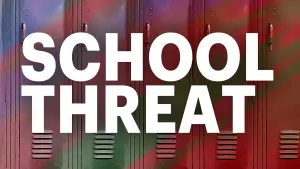More Stories
Around 800,000 students in New York could lose access to free breakfast and lunch if Congress doesn't extend the COVID-era program by the end of June.
The Federal Universal Meal Waiver lets schools feed kids for free without verifying their families' income. Without it, a family of four must earn less than roughly $35,000 to qualify for free meals during the upcoming school year.
"This is a need for students, for kids, no matter their situation at home, no matter the salary that's being made, everyone deserves a plate of food," says Carolina Cortes, of Yonkers. She has school-aged nieces and nephews and says that she supports keeping student meals free for all.
Advocates say the program removes the stigma of getting free food, provides access to families that make just above the salary cutoff and gets rid of most of the administrative work for the district.
MORE: State of Our Schools
If the federal waivers aren't funded, the state would go back to its three-tiered system for school meals: free, reduced, and paid.
The New York School Nutrition Association, a nonprofit anti-hunger organization, says one in five children in the state faces food insecurity and is calling on the state legislature to fund the program in this year's budget if Congress won't act.
"School meals provide a reliable source of nutrition. We know that kids who are hungry can't learn, and we want to take that stress away from the child," says New York School Nutrition Association president-elect Caitlin Lazarski.
Several of the Hudson Valley's largest school districts would still provide free meals under the federal Community Eligibility Provision. While this program remains in place, some school districts don't qualify .
Without the COVID Aid program, parents will now have to go back to applying for free or reduced meals. Another issue is that some parents don't meet the income threshold or just miss it. There is concern that middle-class families and children will suffer the most.
Sen. Shelley Mayor, who chairs the State Senate Education Committee, told News 12, "I am fully supportive of finding the funds for this program."
More from News 12
1:46

Students Explore HBCU opportunities at Mount Vernon fair
0:24

Police presence increased at Hyde Park school after .22‑caliber bullet found in bathroom
0:33

Hundreds of students walk out at Rockland County schools to protest immigration enforcement
1:28

Archbishop Stepinac High School's 8th annual 'Souper Bowl' works to help county residents directly

Hudson Valley districts announce widespread delays after icy conditions
0:24
